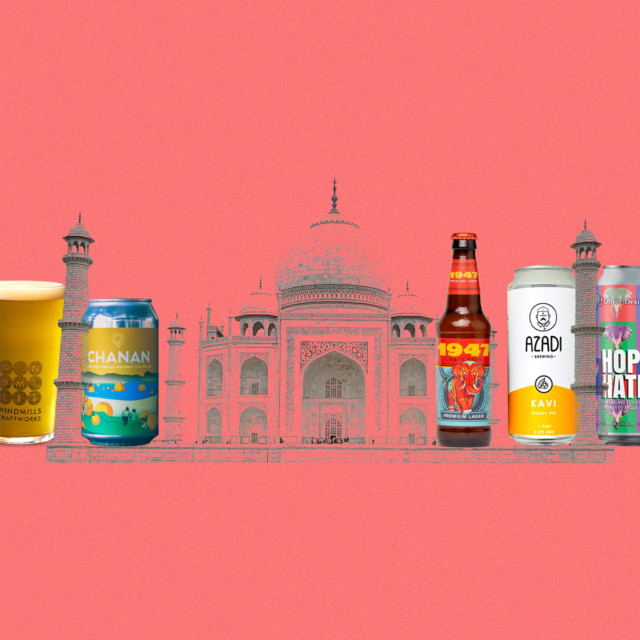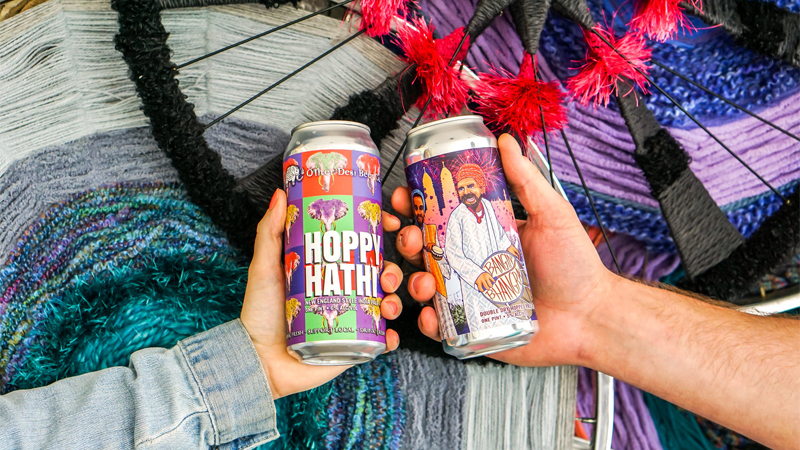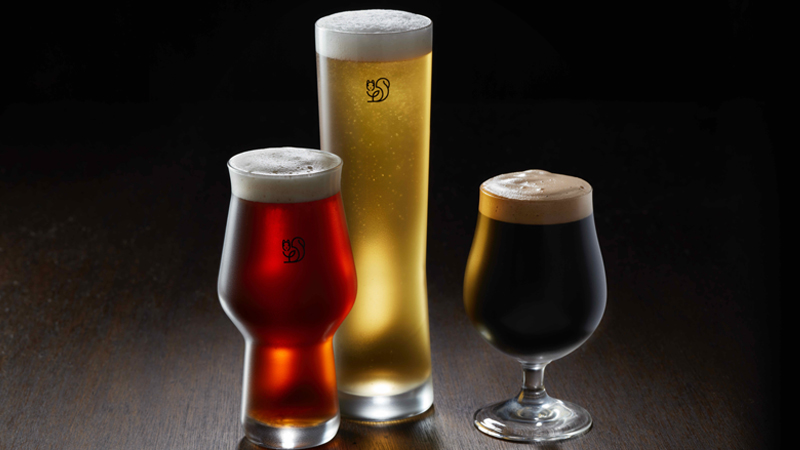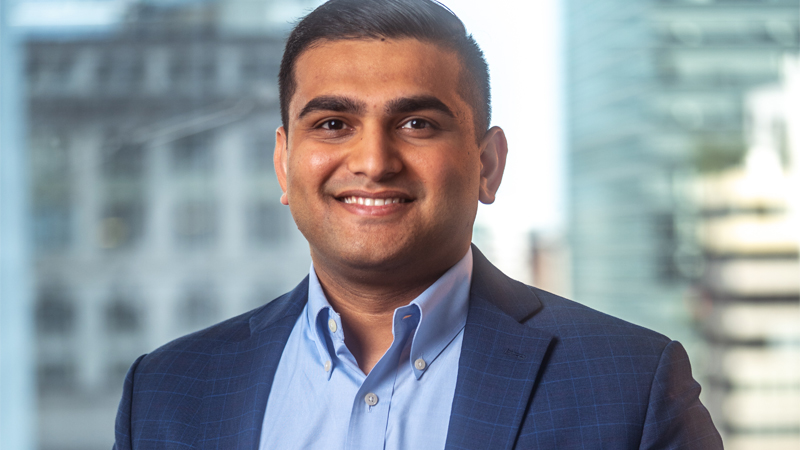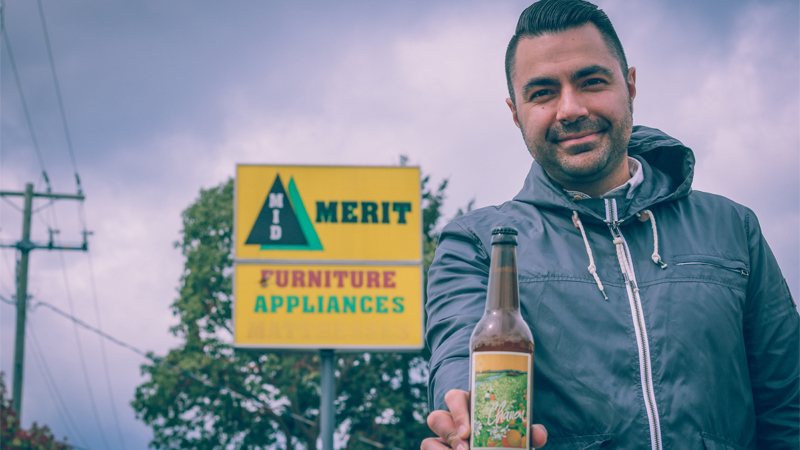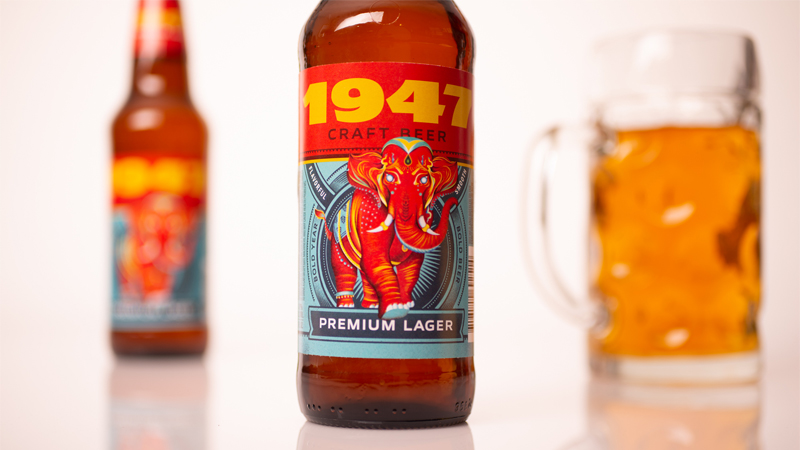“What kind of Indian are you?”
On a train journey home to Connecticut after a New York Yankees game in 2011, Ravi Patel struck up a conversation with a stranger that swiftly took an unpleasant turn. “He proceeded to put four fingers behind his head mimicking feathers (like a stereotype of an Indigenous American) asking if I was this kind of Indian, then putting his finger in the center of his forehead like a dot asking if I was the other Indian,” Patel recounts. He and his friends let the incident slide. It wasn’t until several years later that Patel was inspired to respond indirectly. In 2019, he flipped this negative experience on its head by establishing Other Desi Beer Co. — a brand that tells the world exactly who he is. (Desi is a colloquial term for a person of South Asian descent living abroad.)
For Asian Indians, and indeed all South Asians, this is a powerful if conflicted time to be in North America. Since the inauguration of Kamala Harris, a growing awareness of South Asian Americans has led to increased interest in our fashion, language, and cuisine. This increasing visibility has given us a much-needed opportunity to throw off the reductive myth of the “model minority.”
However, this recognition contrasts sharply with the huge surge in Anti-Asian hate crimes and the disproportionately high rates of Covid-19 infections and fatalities among Asian and Black communities in the West; as well as the horror and helplessness we are feeling in the face of India’s current Covid-19 crisis and its spread through South Asia.
Being Brown in North America is still both precarious and challenging. In many fields, including creative industries, representation remains low and barriers to entry are high. And in the beer world, our presence is paper-thin. With close to 9,000 craft breweries in North America, barely more than a handful are owned by Asian-Indian descendants. Nonetheless, these five forerunners are punching above their weight and making their presence known in the beer world. They’re doing this by establishing an exciting cross-pollination of American craft brewing and Asian-Indian cuisine, adding fruits and spices common in traditional Indian cuisines, such as cardamom, rice, mango, and cinnamon into their beer menus.
Across the North American continent, five brewery founders — in Dallas, Chicago, New York, Connecticut, and Canada — are paving the way for a wider appreciation of Indian flavors. In doing so, they are proving that greater integration of South Asian and Asian-Indian culture into the craft beer world is possible.
Ravi Patel, Owner and Brewer, Other Desi Beer Co., Branford, Conn.
Ravi Patel fell in love with craft beer when he strolled off campus at Eastern Connecticut State University in Willimantic and wandered into the nearby Willimantic Brewing Company taproom. He can still recall his first sip of the flagship golden ale, Certified Gold: “It was just so clean, with the right amount of bitterness at the end — something I could drink every day,” he says. That began his journey to becoming owner and brewer of Other Desi, founded in 2019.
Although Other Desi is currently a contract brand, Patel brews all his own beers at Thimble Island Brewery, also in Branford. His beers are available from the Other Desi website, and in local bars and liquor stores in Connecticut and Pennsylvania.
Patel’s vision for Other Desi is to combine the traditional brewpub experience with the Indian tastes and flavors he grew up with. “I wanted to bring something different to the market, showing off themes, names, and flavors of my culture,” he explains. “In every beer that I produce, I try to add one or more of those elements in hopes to teach the consumer about my culture — that we are more than just curry!” He adds that he “made it a point to add a definition to every can … so that people who don’t know what the words mean or [how to] say [them] have a way to pronounce it and understand it. I think this also helps in educating other non-South Asians to learn a little more about us.”
At just two years old, Patel has already created some exceptional and well-received beers inspired by Indian cuisine. Other Desi High Chai Stout is richly infused with spices including cinnamon, cardamom, and black pepper used in the traditional Indian beverage. The uniquely flavorful Jalabae DIPA is brewed with the popular deep-fried, sticky-sugar-saffron sweets, which nicely offsets its high alcohol content (8 percent ABV); and 3 Ranis Sour with pink guava and hibiscus combines fruit and flower with care and precision.
As well as spreading a love and appreciation for Indian culture and cuisine, Patel reaches out to his community by donating 5 percent of profits to a local charity each year, most recently the Connecticut Restaurant Association. He is also keen to build an inclusive and community-focused space.
“My goal is definitely to help out my community as much as I can,” Patel says. “I’m hoping it will be a place where BIPOC and others can come together and enjoy others’ company, and a place where creatives can gather. I’m hopeful to establish a diverse team who can help make my taproom a reality.”
Ajay Nagarajan, CEO, Windmills Brewery, Dallas
Ajay Nagarajan bought a Mr. Beer homebrew kit from his local 7-Eleven in Dallas in 2008. What started as a hobby quickly developed into a passion, eventually leading Nagarajan to attend Chicago’s Siebel Institute, a premier brewing school, where he earned his brewing certification in 2011.
Then, the opportunity to open his own brewery in India came up. Nagarajan partnered with Kamal Sagar of Total Environment Building Systems, who wanted to open a beer and music venue in India. Nagarajan left Dallas and the tech industry behind — he had worked for Texas Instruments and Micron since 1998 — and seized the chance to take the lead in bringing brewpub culture to Bangalore.
Windmills Brewery opened in Bangalore in September 2012, only the third brewpub in the city at that time. But integrating high-quality, American-style craft beer and Indian cuisine on one continent wasn’t enough for Nagarajan. “I always thought that if I could get my Indian chefs [from the Bangalore brewpub] to travel to the USA and the American brewmasters to travel the other way, we could create a model that is sustainable and unique with cross-pollination of talent and management styles,” he says.
Nagarajan got his wish when Windmills’ parent company began work on a development, The Colony, in a suburb of Dallas, and agreed to incorporate an American branch of the brewpub there offering boutique Indian dishes (Kerala Beef Fry, Kashmiri Lamb Ribs, Shrimp and Fish Pakora). Beer recipes mirror those that have been a hit in Bangalore, including several experimental beers with Indian ingredients.
Currently on tap in Dallas are a sticky, glutinous Rice IPA, balancing sweet, juicy hops with firm starchy rice flavor; and a bright, aromatic saison with mango, passion fruit, and pineapple that balances full, tropical flavors with a gentle yeasty zing. Also in the works, both of which have been hits in Bangalore, are a Coconut Brown Ale and Alphonso Mango Saison. (Alphonso is a delicacy from the west of India. Windmills is trying to source aseptic unpasteurized preservative-free alphonso mango puree from India to make this beer.)
His unique position in both the Indian and American beer industries is an advantage, and Nagarajan is confident about introducing new beers to the Texas market. “We brew small batches and put them on tap and monitor the response,” he says, adding that there hasn’t been a failure to date. He’s also optimistic about the entry of more Asian-Indians into the craft beer world. “We are a curious lot, and our taste buds are keen,” he says with a smile. “A lot of us are venturing out into hobbies that we enjoy, and brewing is definitely one of them.”
Bhavik Modi, Co-founder, Azadi Brewing, Chicago
“Born in Chicago, Indian at heart” is the motto of Azadi Brewing, launched by Bhavik Modi and his best friend and business partner Gator Schrand. The brand launched as part of the Pilot Project brewery incubator in Chicago’s happening Logan Square in November 2020.
Modi says he and Schrand shared an early love of craft beer from their hometown of Cincinnati: “Growing up in Cincinnati, we saw firsthand how craft beer can shape a community through the growth of breweries like Rhinegeist, MadTree, Urban Artifact, and Braxton,” he says. Later, as a strategy consultant, Modi traveled internationally and absorbed different local craft beer cultures and beer and food pairings. “My favorite trips would always be to India, where I would stay an extra weekend or two after my work was done to spend time with my family in Mumbai, but also to explore the craft beer scene in other cities like Jaipur, Hyderabad, and Bangalore,” he says.
The idea to start Azadi, which means “freedom” in Hindi, came after Schrand earned a degree in brewing science from Cincinnati State. Modi relocated to Chicago and fell in love with the inclusive vibe of the city. “The restaurant scene, local breweries and vibrance of so many cultures coming together was incredible,” Modi says. This created the perfect melting pot for a brewery serving the Indian-cuisine-inspired beers that Modi and Schrand had already started creating as homebrewers.
Azadi’s flagship beers include the Kavi Cardamom Golden Ale and Gir Kesar Mango IPA, both boldly showcasing traditional Indian flavors. “We take a lot of pride putting beers in front of our customers that we know they will fall in love with,” Modi says, “and although Kesar mango is an expensive adjunct, we wanted to provide the best and most authentic Indian flavor in Gir.”
This focus on quality and authenticity is central to Azadi’s brewing: Himalayan pink salt and Kashmiri chili powder give a spicy kick to Azadi’s Bhogate Grapefruit Gose; and the recently released Doosra Basmati Rice Lager gives nod to India’s de facto national sport, named after a type of bowling (pitching) on the cricket field.
According to Modi, Azadi’s introduction of Indian flavors to Chicago’s craft beer community has been happily received. “The city has embraced Azadi Brewing and we can’t wait to grow here while supporting the local community,” Modi says. “Our goal isn’t to just be a great Indian brewery but rather to be one of the best breweries in Chicago. We just feel like we have a wider array of flavors to play with and that we can create a bigger audience.”
Tej Sandhu, Co-founder, MERIT Brewing, Hamilton, Ontario
Tej Sandhu was a successful entrepreneur working in the music industry when he began homebrewing as a creative outlet. When the desire to brew full-time took over, Sandhu and his friend, professional brewer Aaron Spinney, laid plans to open MERIT. In starting his own business, Sandhu was inspired by the community ethos espoused by his beloved grandparents Chanan and Charan, who used their furniture store in Nanaimo, B.C., to help over 1,000 other immigrants from their home village of Dhada Delkwa Pur in the Jalandhar district to establish themselves in their new home of Canada. “They housed, clothed, fed, and employed everyone until they were able to go on their way securely and used their business to facilitate this,”Sandhu says, proudly.
MERIT takes its name and values from the original business (a furniture store), with its flagship beer suitably named Chanan in honor of Tej’s grandfather. “I wanted a beer that could stand up to, and add to, the depth of flavor and richness of many of my favorite curries,” says Sandhu. “Chanan is dry hopped, giving it bursting aromatics that match the intensity of aromas in a curry. It’s brewed with orange and Indian coriander, two ingredients that complement those used in some of my favorite dishes, and it’s fermented using a saison yeast that ensures a dry, crisp finish that cleanses your palate after each bite, resetting it to make the next bite feel fresh and vibrant again!”
MERIT’s Unwritten Chai Milk Stout is a shout-out to the often-unwritten recipes that get handed down over generations. And its Catch One Sour Ale, a fruited sour released in 2020 made with grapefruit, blood orange, and cardamom, has turned heads, Sandhu says. “The cardamom caught people off guard when [we first] told them about the beer, but once they experienced it, it really broke down the barrier to the ingredient,” he says. MERIT’s food program headed by Jesse Vallins includes Indian-fusion sausages and homemade chutneys designed to complement the beers.
Charity and community support remain central to MERIT’s mission, which encompasses a broad range of initiatives, including collaborations with Beer. Diversity.’s Ren Navarro (More Than); and with Collective Arts Brewing for All Together Now. More Than saw proceeds donated to the Hamilton Centre for Civic Inclusion, specifically to support the Black Youth Mentorship Program that they facilitated. The Collective Arts collaboration, All Together Now, saw 100 percent of proceeds donated to three organizations that support the unhoused populations in downtown Hamilton.
MERIT also recently established its own Chanan Singh Sandhu Scholarship, assisting young community outreach mentors with higher-education fees. Sandhu asserts the imperative to give back, saying, “We feel a huge responsibility to be great citizens and neighbors to others in Hamilton.”
Nirav Vyas, Founder, 1947 Craft Beer, Queens, N.Y.
Headquartered in Long Island City and brewed in Harrisburg, Penn., 1947 Craft Beer was founded in 2009 by Nirav Vyas out of a love of beer and food — and the desire to find the perfect beer to pair with spicy dishes. “Growing up on my mom’s cooking, this was the cuisine I was most familiar with,” he says. “Indian food has some of the most interesting flavor profiles out there, and I wanted a beer that would complement them.”
Vyas says a focus on brewing a high-quality beer with a firm flavor that makes for flexible food pairing has been key to the brand’s success. “1947 stands out because of our focus on the flavor profile,” says Vyas. “It was our calling card when we first started.”
Vyas’s background in finance meant that he was well equipped to enter the competitive craft beer market, and he has been swift to establish his product by working with high-end restaurants and securing distribution in more than a dozen states (Florida, Georgia, North Carolina, South Carolina, Virginia, Delaware, New Jersey, New York, Connecticut, Rhode Island, Illinois, Oregon, and Washington). The flagship Premium Lager is crackling-crisp, with bright, clean floral-herb hops and a gently bitter finish, an excellent foil for spicy food and an all-rounder to suit a multitude of cuisines. To date, 1947 has been featured at a total of nine James Beard Foundation House Dinners.
With the lager successfully integrated into eateries around the country — and an IPA on the way — 1947 is already breaking significant industry ground.
Vyas is confident that more South Asians will begin to enter the market. “The new younger generation of South Asians are more curious and inclined to help each other. We are forming a new subculture,” he says. “We are not just lawyers and doctors anymore. Our parents’ generation would have been skeptical about entering the beer world, but now there is a place for South Asian entrepreneurs in industries like craft beer.”
With the craft beer market booming in India and a growing appreciation for craft beer among Asian-Indian drinkers, it is certainly likely that more Asian-Indians will enter the industry, and there is a strong sense of positivity among those paving the way.
Five of the First, but Not the Last
“I think as of last year there has been more inclusion within the industry and it’s great to see more people of color entering the beer world,” says Patel. “I think it’s going to open more doors for South Asians and others to pursue their dreams.” Tej Sandhu agrees. “We’ve seen a small but growing group of South Asian people enter the industry, but also an overall interest and awareness of craft beer in the South Asian community.” And Nirav Vyas is expecting big things going forward. “The craft beer scene has been elevated to new heights on a global level, and within the South Asian community both from the production and consumption side, the demand for quality beer is only going to increase,” he says. With interest and demand for Asian-Indian craft beer undoubtedly on the rise, Patel, Nagarajan, Modi, Sandhu, and Vyas have a lot to be optimistic about.
In her acceptance speech, Kamala Harris said: “I may be the first woman to hold this office. But I won’t be the last.” These five men may be the first handful of Asian-Indian entrepreneurs to start beer brands in North America — but, like Harris, they certainly won’t be the last.
This story is a part of VP Pro, our free platform and newsletter for drinks industry professionals, covering wine, beer, liquor, and beyond. Sign up for VP Pro now!
